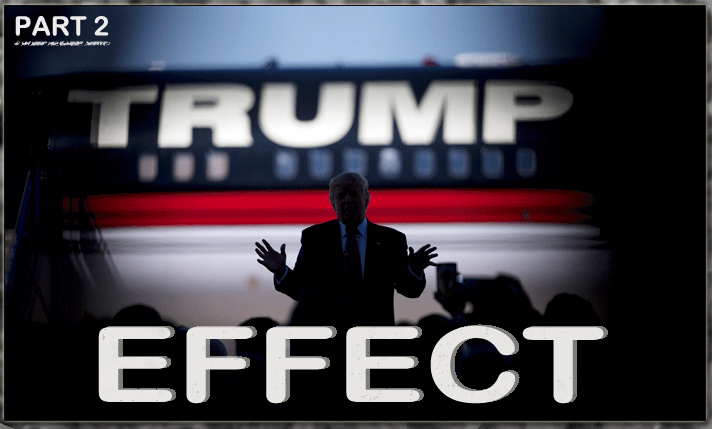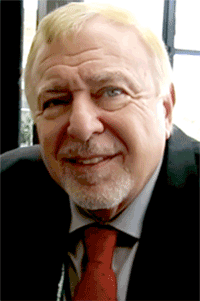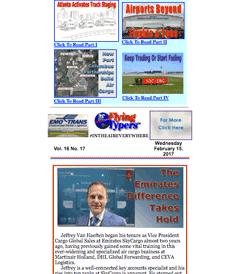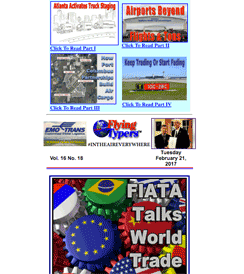
The
first 38 days under President Trump
have made it obvious that this President
will do everything possible to maintain
his campaign promises, which are basically
increasing the security of the U.S.,
growing the U.S. economy (and hence
jobs), and rebuilding the U.S. infrastructure.
In
this article, I will continue focusing
on what I see President Trump doing
to grow the U.S. economy and jobs
and how that will affect the airline
industry. In the past year, China’s
economy has surpassed the U.S., and
many economists predict India will
surpass the U.S. by 2040. That may
look like a long time off, but when
you are attempting to restructure
the U.S. to prevent this, it is tomorrow.
President
Trump has committed to favor products
produced in the U.S. and help grow
businesses in the U.S. He is looking
at reducing cumbersome U.S. government
regulations, reduce taxes on companies,
reeducate U.S. workers, give jobs
to people legally in the U.S., and negotiate
fairer trade agreements among other
countries. The U.S. stock market obviously
believes he can do this.
To
U.S. airlines, the question is whether
these policies support their growth.
Obviously, U.S. combination carriers
will benefit, but what about the carriers
dependent on the movement of cargo? The
one bright spot I have seen over the
past few weeks is that this new administration
understands the positive value of
trade on the U.S. economy. While they
appear to be against multilateral
trade agreements, they appear to be
embracing bilateral trade agreements.
Bilateral agreements are nothing new
to the airline industry and in fact
they can be extremely beneficial.
What
company wants to deal with, say, 10
vendors under one agreement? As
business people we all know the downside
of these multilateral agreements. So
will these bilateral trade agreements
increase the movement of air cargo
to and from the U.S. and beneficially
increase the movement of air cargo?
We have
already seen discussions with England,
Japan, and Canada and there is confusion
on what his “One China”
policy means. But the big question
is whether President Trump can get
the cost of U.S. goods low enough,
with his incentive plans, to be competitively
priced globally within these agreements. If
he can do that while improving the
U.S. economy—providing more
good paying jobs for U.S. workers
and increasing the value of the U.S.
dollar—then everyone is a winner.
Bill Boesch
 Mr.
Boesch started his career in global
transportation and logistics in
1965 working for Seaboard World
Airlines. He later joined Flying
Tiger Airlines and Emery Worldwide.
Mr. Boesch then left Emery to
become Pan American World Airways’
Senior Vice President where he
headed both Passenger and Cargo
Sales and Operations. He left
Pan Am to lead American Airlines’
Cargo operation and retired from
AA in 1998. Under his direction
American became a world leader
in the air cargo and logistics
business. Mr.
Boesch started his career in global
transportation and logistics in
1965 working for Seaboard World
Airlines. He later joined Flying
Tiger Airlines and Emery Worldwide.
Mr. Boesch then left Emery to
become Pan American World Airways’
Senior Vice President where he
headed both Passenger and Cargo
Sales and Operations. He left
Pan Am to lead American Airlines’
Cargo operation and retired from
AA in 1998. Under his direction
American became a world leader
in the air cargo and logistics
business.
Mr.
Boesch was involved in projects
for the U.S. Government throughout
his airline career and became
more active after retiring from
AA by serving as Director of U.S.
Aviation Policy for the White
House Commission on Aviation Security.
He also has worked for the U.S
Government in high level logistics
and security projects which included
terrorist attack planning and
analysis. Mr. Boesch was part
of the extensive on site planning
and support of the Iraq drawdown,
involvement with the Afghanistan
operations, and has worked on
all aspects of the Civil Reserve
Air Fleet (CRAF) from both an
airline and government standpoint.
Mr.
Boesch has also served as Chairman
of the International Air Transport
Association (IATA) Cargo Executive
Subcommittee in 1996 and 1997,
Vice Chairman of IATA’s
Cargo Committee. Mr. Boesch served
on the Board of Directors of Air
Cargo Incorporated, Air Cargo
International, The International
Air Cargo Association (TIACA),
Envirotainer, Cargo Logistics
Solutions, Deutsche Post/DHL Global
Mail, al Seqir and consulted for
major U.S. companies including
Flight Safety.
Mr.
Boesch is the recipient of numerous
awards including the Lifetime
Air Cargo Achievement Award, the
Ellis Island Medal of Honor and
various awards from the U.S. Department
of Defense.
Mr.
Boesch is presently continuing
his work for the U.S. Government
and heads up The Council For Logistics
Research. |
To Read Part
1 of This Series, Click Here .
To Read Trump Effect—India Walks
Softly Carries Big Stick, Click Here
To Read Trump Effect—Implications
Of A Trump Trade War, Click Here |




 Vol.
16 No. 17
Vol.
16 No. 17 Vol.
16 No. 18
Vol.
16 No. 18